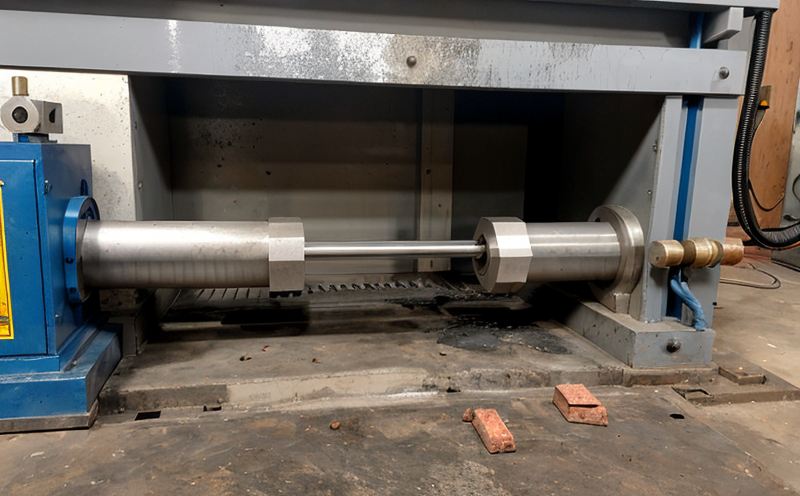ISO 1099 High Cycle Fatigue Testing Validation Method Development Test
The ISO 1099 standard outlines a method to validate testing procedures used in high cycle fatigue (HCF) testing. This service is crucial for industries where components are subjected to cyclic loading, such as aerospace, automotive, and mechanical engineering. High cycle fatigue can occur when materials are repeatedly stressed beyond their yield point. Ensuring that the test methods meet international standards guarantees reliability, safety, and compliance with regulatory requirements.
The process involves several key steps: first, the test method is developed based on the specific needs of the client or industry standard. This could include selecting appropriate specimen types (e.g., round bars, flat plates), determining the number of cycles to be applied, and deciding on the loading conditions. Once the method has been defined, it undergoes validation through a series of tests, ensuring that the results are accurate and reproducible.
One critical aspect is understanding the parameters involved in HCF testing. These include the stress amplitude (σm), mean stress (σm), fatigue limit (K), and the number of cycles to failure (Nf). The test setup typically uses specialized equipment such as fatigue testers, strain-controlled machines, or load-controlled systems capable of applying cyclic loading up to millions of cycles.
Specimen preparation is also vital. Depending on the material being tested, this may involve machining, heat treatment, and surface finishing. For metals like steel, this could mean controlling grain size and hardness through controlled annealing processes. The goal is to ensure that the specimen accurately represents the component it will be used for in real-world applications.
The testing process itself involves applying cyclic loading until failure occurs or a predetermined number of cycles has been reached. Data collected during this period includes strain, stress, and displacement measurements at various points along the specimen's length. This data is then analyzed to determine if the test method produces results consistent with those expected from international standards.
Validation ensures that any discrepancies between actual test outcomes and theoretical predictions are minimized. By adhering strictly to ISO 1099 guidelines, we can provide reliable validation services that help manufacturers maintain product quality while ensuring compliance with relevant regulations.
Benefits:
- Achieve international standard compliance for high cycle fatigue tests
- Ensure accurate and reproducible results across multiple testing sessions
- Identify potential issues early in the development process, reducing costly rework later on
- Increase confidence among stakeholders regarding product reliability and safety
Quality and Reliability Assurance:
- Use state-of-the-art equipment calibrated to meet ISO standards
- Employ experienced technicians who are trained in the latest techniques for HCF testing
- Prioritize data integrity through rigorous quality control measures throughout every stage of testing
In summary, our ISO 1099 High Cycle Fatigue Testing Validation Method Development Test service provides a comprehensive approach to validating high cycle fatigue tests. By working closely with clients from the outset, we ensure that each test is tailored specifically to their unique requirements while adhering strictly to international standards.
Eurolab Advantages
At Eurolab, we pride ourselves on delivering world-class services that meet both national and international standards. Our team consists of highly skilled professionals with extensive experience in materials testing and validation. We offer a full range of mechanical properties testing services, including tensile strength tests, hardness tests, impact energy absorption tests, and more.
We understand the importance of accurate and reliable test results when it comes to ensuring product quality and safety. That's why we invest heavily in cutting-edge equipment and continuous staff training. Our facilities are equipped with state-of-the-art instruments capable of performing even the most demanding tests. Whether you're a small startup or a large corporation, our goal is always the same: to provide top-notch services that exceed your expectations.
Additionally, we offer flexible booking options tailored specifically to meet your schedule and budget constraints. Our experienced technicians are available whenever needed, ensuring minimal downtime for your operations. We also provide detailed reports on all tests conducted, complete with graphs, charts, and other visual aids to help you better understand the results.





